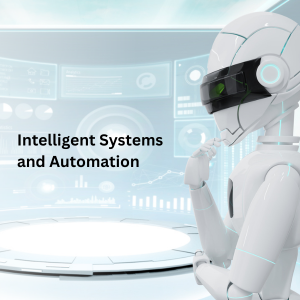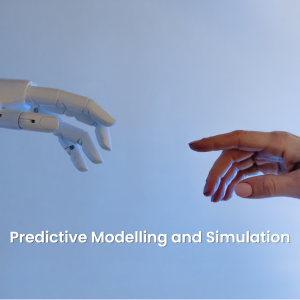Announcement
Get Ready for INDUS CUP 2K26! | Dates: 5–10 January 2026 | Stand a Chance to Win Cash Prizes up to ₹10,00,000!...Read more Get Ready for INDUS CUP 2K26! | Dates: 5–10 January 2026 | Stand a Chance to Win Cash Prizes up to ₹10,00,000!
We are excited to announce the Indus Hackathon 2025, an exhilarating one-day event organized by the CSE Department of Indus University....Read more We are excited to announce the Indus Hackathon 2025, an exhilarating one-day event organized by the CSE Department of Indus University.
26th ISTE Faculty Annual State Convention will be held at Indus University on April 27, 2023....Read more 26th ISTE Faculty Annual State Convention will be held at Indus University on April 27, 2023.
Get Ready for INDUS CUP 2K26! | Dates: 5–10 January 2026 | Stand a Chance to Win Cash Prizes up to ₹10,00,000!...Read more Get Ready for INDUS CUP 2K26! | Dates: 5–10 January 2026 | Stand a Chance to Win Cash Prizes up to ₹10,00,000!
We are excited to announce the Indus Hackathon 2025, an exhilarating one-day event organized by the CSE Department of Indus University....Read more We are excited to announce the Indus Hackathon 2025, an exhilarating one-day event organized by the CSE Department of Indus University.
26th ISTE Faculty Annual State Convention will be held at Indus University on April 27, 2023....Read more 26th ISTE Faculty Annual State Convention will be held at Indus University on April 27, 2023.

Artificial intelligence (AI) & machine learning (ML) have transformed many industries in recent years, including engineering. The incorporation of AI and ML into engineering solutions has increased efficiency and production while also altering data analysis and decision-making processes.
This article examines the critical role of Artificial intelligence (AI) and Machine Learning (ML) in modern engineering, with a focus on how they contribute to increased efficiency and production, as well as their impact on data analysis and decision-making.
Engineering has undergone a revolution thanks to AI and ML, which automate tedious operations and streamline intricate procedures. They have proven to have a considerable impact, among other things, on the design and manufacturing of products. Traditional engineering techniques frequently rely on lengthy manual iterations and trial and error, which may be expensive and time-consuming. AI and ML algorithms, on the other hand, can analyse enormous volumes of data, spot trends, and optimise designs, leading to quicker and more effective product development.
AI-driven automation systems have streamlined various engineering tasks, such as quality control, maintenance, and inspection. By utilising sensors, AI algorithms can monitor real-time data, detect anomalies, and predict potential failures, enabling proactive maintenance. This not only reduces downtime but also minimises the risk of costly equipment failures, ultimately enhancing productivity.


In engineering, data analysis plays a critical role in understanding complex systems, identifying trends, and making informed decisions. AI and ML have revolutionised the way engineers analyse data by enabling more efficient and accurate processing. These technologies can handle vast amounts of data, extracting valuable insights and patterns that may otherwise go unnoticed.
ML algorithms, in particular, have proven to be invaluable in predictive maintenance. By analysing historical data, these algorithms can identify patterns that indicate equipment failure probabilities. Engineers can then proactively schedule maintenance activities, reducing unplanned downtime and maximising operational efficiency.
AI-based decision support systems assist engineers in making informed choices by considering a wide range of factors. These systems can process complex data sets, simulate scenarios, and provide recommendations based on predefined criteria. Whether it's optimising supply chains, determining optimal production schedules, or selecting the most cost-effective materials, AI and ML provide engineers with valuable insights to make better decisions.
Engineering is entering a new era of intelligent systems and automation thanks to artificial intelligence and machine learning. These innovations make it possible to create complex systems with real-time decision-making capabilities that can adapt and learn. Operations can be optimised, safety can be increased, and overall efficiency can be improved with intelligent systems that use AI and ML algorithms.
One significant area where intelligent systems have made a profound impact is autonomous vehicles. AI and ML algorithms enable self-driving cars to perceive their surroundings, make real-time decisions, and navigate complex road conditions. These technologies rely on deep learning networks to analyse sensor data and learn from various scenarios, making autonomous vehicles safer and more reliable.

In manufacturing, AI-powered robots and automation systems have revolutionised production lines. These robots can handle intricate tasks with precision and speed, reducing human error and increasing productivity. AI algorithms also enable robots to adapt to changing conditions, learn from experience, and optimise their actions, resulting in improved efficiency and flexibility in manufacturing processes.

Predictive modelling and simulation are essential techniques in engineering, allowing engineers to analyse system performance, predict outcomes, and optimise designs. AI and ML are critical in improving predictive modelling and simulation capabilities, resulting in more accurate and dependable findings.
ML algorithms can analyse historical data, identify patterns, and make predictions about future behaviour. In engineering, this ability is particularly valuable in fields such as structural analysis, fluid dynamics, and material science. Engineers can use ML models to predict the behaviour of complex systems under various conditions, allowing them to optimise designs, minimise risks, and make informed decisions.
The impact of AI and ML on simulation is an additional important field. Historically, simulations have entailed intricate mathematical models and presumptions. The development of AI and ML has made it possible to enhance simulations with data-driven models that more realistically reflect the intricacies of the actual world. In addition to offering more accurate and trustworthy simulations for engineers to assess and test their ideas, these models can learn from historical data, adapt to changing situations, and learn from their training data.
Furthermore, AI-based optimisation algorithms can streamline the design process by searching vast design spaces to identify optimal solutions. By leveraging ML techniques, engineers can efficiently explore a wide range of design options, saving time and resources while achieving superior performance.
Modern engineering solutions that incorporate AI and machine learning have changed the industry and improved output and efficiency. Artificial intelligence (AI) and machine learning (ML), which automate tasks, optimise processes, and allow data-driven decision-making, have changed how engineers currently design, construct, and manage systems. Despite the challenges and ethical concerns that still need to be overcome, it is clear that AI and ML have the potential to affect how engineering is practised in the future. As these technologies advance and are integrated with other cutting-edge technologies, engineers may predict even greater advancements in AI and ML algorithms.